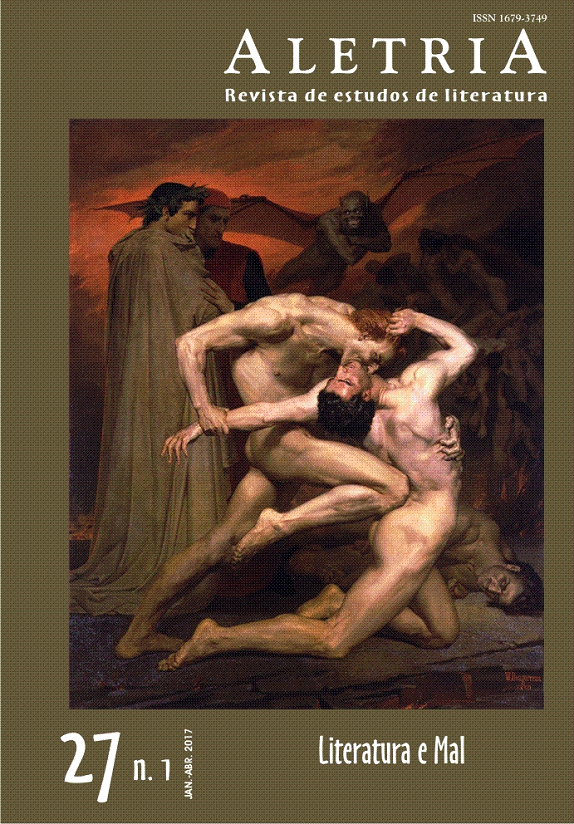Learning How to Read, Learning How to Fall: Literacy and Transgression in Henry James’s “The Pupil” and Machado de Assis’s “Missa do Galo”
DOI:
https://doi.org/10.17851/2317-2096.27.1.249-270Keywords:
Henry James, learning, Machado de Assis, morality, readingAbstract
At a stage when the literary careers of Henry James and Machado de Assis were consolidating in terms of public appraisal, they published two short narratives: “The pupil” (1891) and “Missa do galo” (1894), that focused on the relationship between a young man and an older character, a tutelary figure of physical and intellectual attraction. By tackling questions of narration and interpretation, this comparative reading aims to identify the major plot lines drawn around that relationship and realize in which ways it harks back to both authors’ critical reflection on the notion of learning, on the effects of reading, and on the relevance of morality and social standards. It also focuses on how that relationship connects to the literary treatment given to these different aspects in their relational sphere. To this end, the role of death and past in literary creation, as well as of memory and retrospect, is given particular attention, enabling us to understand how the formulation of evil is deeply connected for these characters to the corruption of the family unit.
Downloads
References
ASSIS, Machado de. Missa do galo. In: ASSIS, Machado de. Um homem célebre – antologia de contos. Lisboa: Cotovia, 2013. p. 253-260.
BALESTRINI, Nassim. The Architecture of the Mind: The Depiction of Consciousness in Selected Short Works by Vladimir Nabokov and Henry James. Amerikastudien / American Studies, Heidelberg, v. 47, n. 3, p. 345-357, 2002.
BAPTISTA, Abel Barros. A formação do nome: duas interrogações sobre Machado de Assis. São Paulo: Unicamp, 2003.
BELL, Millicent. Meaning in Henry James. Cambridge, London: Harvard University Press, 1991.
BRAKEL, Arthur. Ambiguity and Enigma in Art: The Case of Henry James and Machado de Assis. Comparative Literature Studies, The Pennsylvania State University Press, v. 19, n. 4, p. 442-449, 1982.
BROOKS, Peter. Realist Vision. New Haven, London: Yale University Press, 2005.
CÁFFARO, Geraldo. “From Beyond the Grave”: The Posthumous Trope in Nathaniel Hawthorne, Machado de Assis, and Henry James. In: ROWE, John Carlos (Ed.). Henry James Today. Newcastle: Cambridge Scholars, 2014. p. 113-127.
CARROLL, Lewis. The Annotated Alice: Alice’s Adventures in Wonderland and Through the Looking Glass. Ed. Martin Gardner. London: Penguin, 2001.
CURTIUS, Ernst Robert. European Literature and the Latin Middle Ages. Princeton, NJ: Princeton University Press, 1990.
DIXON, Paul. Os contos de Machado de Assis: mais do que sonha a filosofia. Porto Alegre: Movimento, 1992.
HORNE, Philip. Henry James: The Master and the ‘Queer Affair’ of “The Pupil”. Critical Quarterly, John Wiley and Sons, v. 37, n. 3, p. 75-92, set. 1995.
HOY, Helen. Homotextual Duplicity in Henry James’s “The Pupil”. The Henry James Review, Johns Hopkins University Press, v. 14, n. 1, p. 34-42, 1993.
JAMES, Henry. On “The Pupil”. In: JAMES, Henry. Tales of Henry James. Ed. Christof Wegelin, Henry B. Wonham. New York, London: Norton, 2003. p. 409-413.
JAMES, Henry. The Pupil. In: WEGELIN, Christof; WONHAM, Henry B. (Eds.). Tales of Henry James. New York, London: Norton, 2003. p. 133-171.
MOON, Michael. A Small Boy and Others: Imitation and Initiation in American Culture from Henry James to Andy Warhol. Durham, London: Duke University Press, 1998.
PARREIRA, Marcelo Pen. Realidade possível: dilemas da ficção em Henry James e Machado de Assis. São Paulo: Ateliê, 2012.
PASSOS, José Luiz. Machado de Assis, Moral Imagination and the Novel. Machado de Assis em Linha, São Paulo, v. 7, n. 13, p. 5-18, jun. 2014. https://doi.org/10.1590/S1983-68212014000100003
PASSOS, José Luiz. O mal e a metamorfose em Machado de Assis. Luso-Brazilian Review, University of Wisconsin Press, v. 46, n. 1, p. 57-74, 2009.
PAULSON, Ronald. Sin and Evil: Moral Values in Literature. New Haven, London: Yale University Press, 2007. https://doi.org/10.12987/yale/9780300120141.001.0001
VASTOLO, Manuela. Class Ties in “The Pupil”. In: DE BIASIO, Anna; DESPOTOPOULOU, Anna; IZZO, Donatella. Transforming Henry James. Newcastle: Cambridge Scholars, 2013. p. 304-318.
Downloads
Additional Files
Published
How to Cite
Issue
Section
License
Copyright (c) 2017 Amândio Reis (Autor)

This work is licensed under a Creative Commons Attribution 4.0 International License.
Authors who publish with this journal agree to the following terms:Authors retain copyright and grant the journal right of first publication with the work simultaneously licensed under a Creative Commons Attribution Non-Commercial No Derivatives License that allows others to share the work with an acknowledgement of the work's authorship and initial publication in this journal.Authors are able to enter into separate, additional contractual arrangements for the non-exclusive distribution of the journal's published version of the work (e.g., post it to an institutional repository or publish it in a book), with an acknowledgement of its initial publication in this journal.Authors are permitted and encouraged to post their work online (e.g., in institutional repositories or on their website) prior to and during the submission process, as it can lead to productive exchanges, as well as earlier and greater citation of published work (See The Effect of Open Access).





